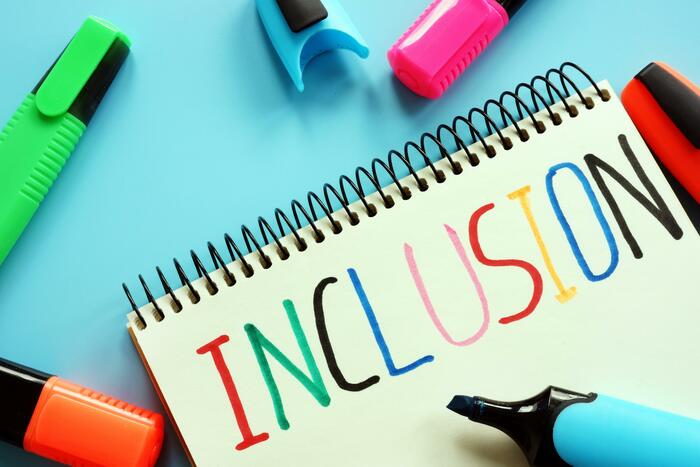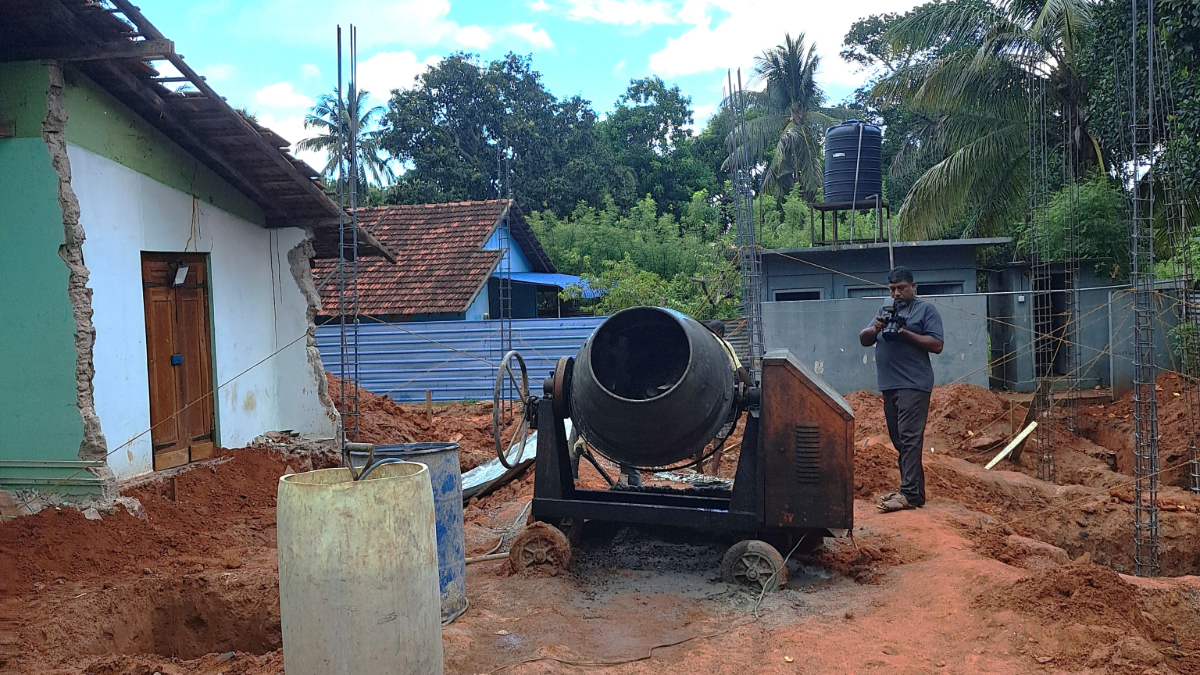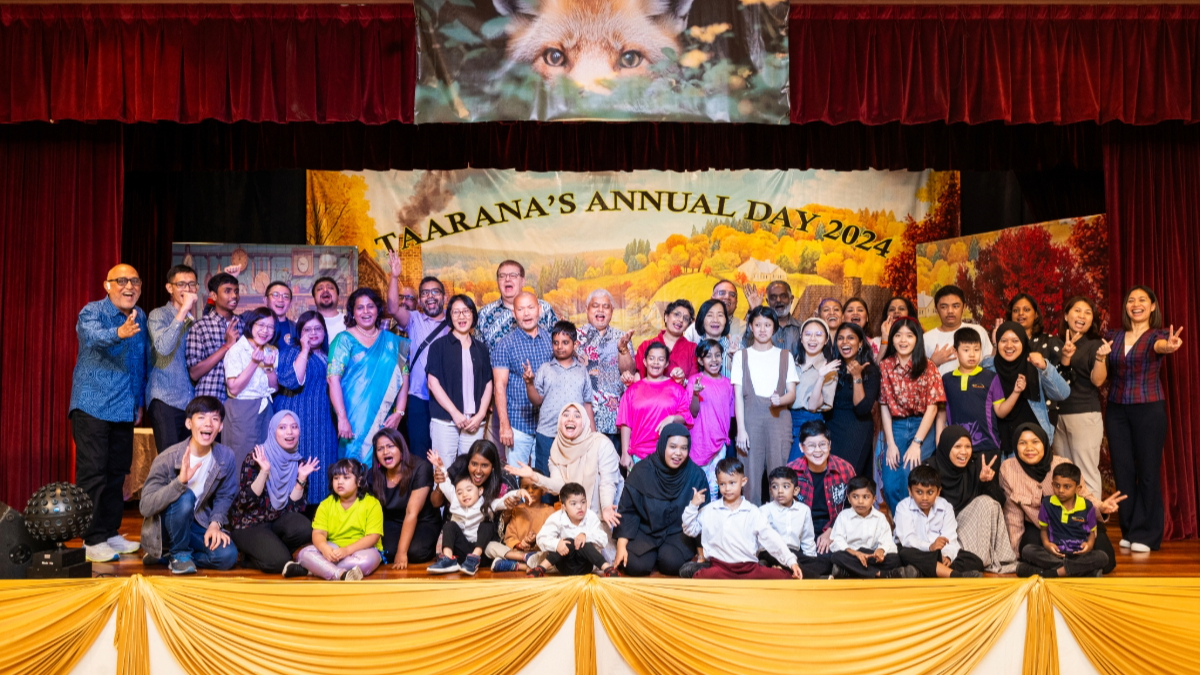RYTHM Foundation believes all children can benefit from a more inclusive, equitable and holistic education system.
The United Nations Children’s Fund (UNICEF) estimates that a staggering 240 million children worldwide live with disabilities. Like their typically-abled peers, children with disabilities or special needs should receive quality education to develop their skills and realise their full potential.
The agency is unambiguous in its assertion that these children are often overlooked in policymaking, limiting their access to education and their ability to participate in social and economic life.
“Worldwide, these children are most likely to be out of school. They face persistent barriers to education stemming from discrimination, stigma, and the routine failure of decision-makers to incorporate disability in school services,” UNICEF says.
The data surrounding this depth of deprivation is unsettling. For example, a comprehensive statistical analysis by the same agency found that compared to their typical peers, special needs children are:
- 42% less likely to have foundational reading and numeracy skills
- 49% more likely to have never attended school
- 47% more likely to be out of primary school
- 33% more likely to be out of lower-secondary school, and
- 27% likely to be out of upper secondary school
‘A Fair Chance to Learn and Thrive’
These numbers highlight the importance of designing targeted solutions to address inequities in special education needs (SEN). UNICEF states, “Inclusive education is the most effective way to give all children a fair chance to go to school, learn and develop the skills they need to thrive.”
RYTHM Foundation shares the same conviction. The social impact arm of the QI Group believes that all children have varying degrees of potential waiting to be unlocked by a more inclusive, equitable and holistic education system that nurtures them on their strengths.
The Foundation aspires to create a world-class institution in Malaysia that caters to differently-abled students and has taken proactive steps to accomplish this.
Last year, RYTHM engaged a research team from Malaysia’s Universiti Malaya (UM) to uncover the on-the-ground reality of SEN in the country. The study focused on gathering data to support creating a school-based programme for enhancing the holistic development of children with special needs.
The research involving surveys and interviews with educators, parents, private institutions, and NGOs initially found that teachers were ready for inclusive education. However, their willingness varied significantly on teaching experience and training exposure.
Also read: RYTHM and UM Study Reveals Malaysian Teachers’ Readiness for Inclusive Education
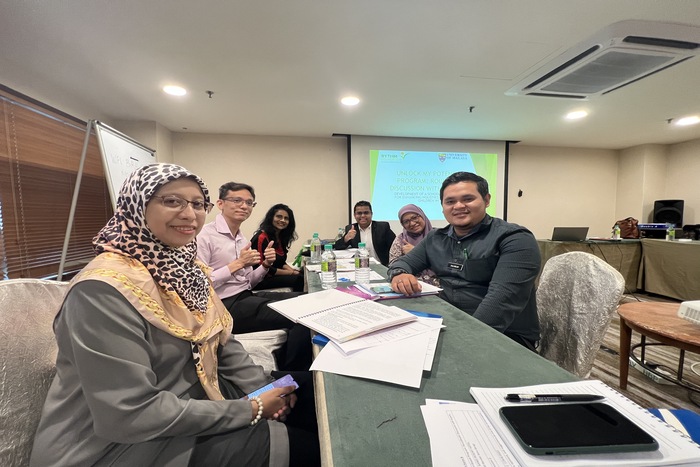
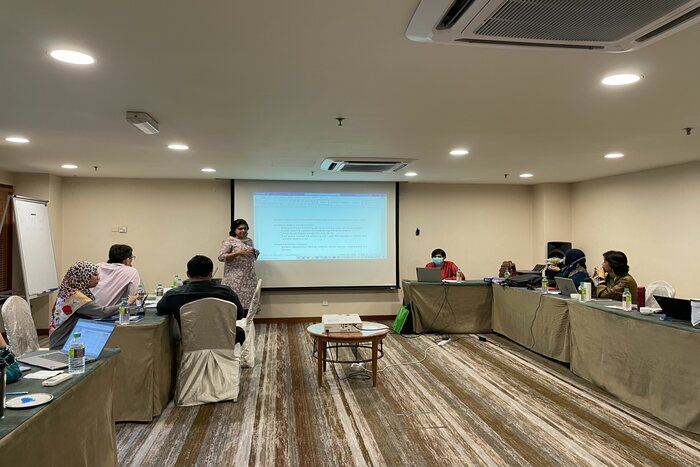
The experts engage in discussing Malaysia’s special education needs programmes.
Addressing Inequities in Special Education
Recently, representatives from RYTHM, the research team, and invited experts delved deeper into the findings in a two-day seminar entitled “Unlock My Potential: Roundtable Discussion with Experts.”
The specialists included the Principal of RYTHM’s special needs institution Taarana School, Dr Sunitha Sivakumaran; UM Associate Professor Dr Rafidah Aga Mohd Jaladin; UM Associate Professor Dr Thilagavathy Shanmuganathan; UM Senior Lecturer Dr Donnie Adams Paramasivam; researcher and trainer Ruth Arunasalam; Dr Daniel Leong of Autism Initiatives Malaysia, and Education Ministry and Social Welfare Department representatives.
The dialogue organised by UM engaged the participants in focus groups on issues surrounding national SEN programmes, special needs students’ schooling experiences, and the incumbency of an inclusive SEN curriculum.
“This first discussion is the culmination of work done thus far in phases one and two of the ‘Programme for Enhancing the Holistic Development of Children with Special Needs’ study Universiti Malaya conducted,” Dr Rafidah said.
“The input of the various stakeholders is necessary to ensure a holistic curriculum that would benefit children with special needs,” Dr Rafidah, who also led the RYTHM-commissioned study, added.
The panellists established that inclusion is not about fitting in and meeting mainstream education targets. Instead, it is about changing school systems and environments to ensure that students participate fully and meaningfully in school. They identified numerous gaps and challenges in the current programmes affecting educators and students, including the lack of practical training, manpower, and resources.
“The current ratio of one teacher to five students is a problem,” the experts said in a summary of their discussions. “All low-functioning students are sometimes placed in one class to solve understaffing difficulties. In other instances, inclusive class teachers tend to focus on the lesson plan instead of the desired one-to-one instruction.”
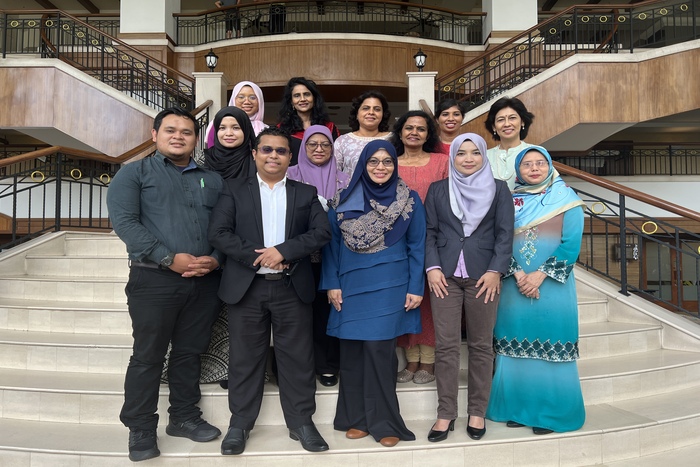
Research lead Associate Professor Dr Rafidah Aga Mohd Jaladin (centre, first row) and RYTHM Foundation Head Santhi Periasamy (second from right, middle row) with the panellists.
The ineffectiveness of the current national programme links to parents, too. “Parents don’t know where to refer their child’s condition, the best time to get an intervention, and what is the best treatment. In certain cases, parents do not play a role in maintaining the intervention continuity initiated by teachers.”
The experts’ recommendations to overcome these and various other limitations primarily centred on reviewing SEN in its entirety – from accurate early diagnosis and improved training to greater parental responsibility and ensuring conducive environments and infrastructure.
More crucially, the panellists agreed that the ideal inclusive school would customise its programmes to meet each child’s unique needs. “The current (national) curriculum only trains teachers to handle learning disabilities. Diversified learning challenges can be complex without prior training.
They suggested appropriate training for educators to develop each student’s Individualised Education Plan (IEP). “Base the IEP on the needs of each child, match it to what the school can provide, and allow the flexibility of change according to shifting demands.”
The study and the recent discussions exceeded the Foundation’s expectations. RYTHM Head Santhi Periasamy shared, “We initially aimed the UM study to give us on-the-ground data for a school-based programme for recommendation to the Education Ministry. However, this conference has given us more.
“We now have a progressive picture of what would make the best, state-of-the-art inclusive school. You have outlined the challenges, identified the solutions, and defined the ideal curriculum. RYTHM and UM look forward to presenting these findings to the ministry,” Santhi said.
UM’s Dr Thilagavathy echoed Santhi’s sentiments. “We are in this together because we are an ecosystem. It’s not about private or public (education). However, the aspiration is for us to work together to create a better world for children with special needs.”

